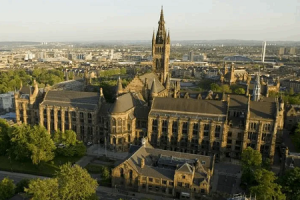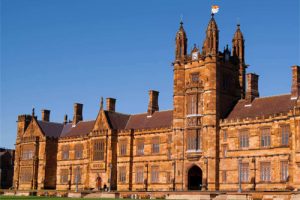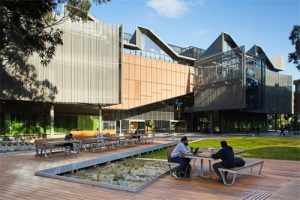女王学院Queen’s College 作业不会写怎么办?essay怎么写?Essay的写作技巧有哪些?今天留学作业网就详细的跟大家介绍一下essay怎么写相关内容。
女王学院简介
What it’s like
Founded in 1843, as a Methodist foundation. Its premises are on a single, semi-rural campus in 30 acres
on the southern outskirts of Taunton. Very pleasant buildings and fine playing fields. It is now fully
co-educational, having first admitted girls in the seventies. The pre-prep and nursery are combined. There has been much development in the last 30 years, including a fine concert/assembly hall, music school, science labs and a performing arts centre. Facilities are good and the school is well positioned for field work and expeditions to Exmoor, Dartmoor and the Quantocks. Examination results are very good.
An exceptionally strong music department; innovative drama and art. There is a good range of games
and sports, with a special emphasis on outdoor pursuits. Many activities and a distinguished record in the Duke of Edinburgh’s Award Scheme. The school enjoys vigorous local support.
School profile
Pupils & entrance
Pupils: Age range 3–18; 721 pupils (excluding nursery), 552 day (300 boys, 252 girls), 169 boarding (93 boys, 76 girls). Senior department 11–18, 500 pupils (278 boys, 222 girls).
Entrance: Main entry ages 11, 13 and 16. Common Entrance or own exam used; for sixth-form entry, 5 GCSEs at least grade C (grade B in sixth-form subjects). State school entry, 25% main intake, under 10% to sixth form. 60+% of senior intake from own junior school.
Scholarships & bursaries 45 pa scholarships, value up to 50% of fees: 21 academic, 6 drama, 6 sport, 12 music (awarded at 8, 10–13, 16). Some bursaries, based on financial need.
Head & staff
Headmaster: Christopher J Alcock, in post from 2001. Educated at Sevenoaks
School and Durham University (geography). Previously Deputy Head at King Edward’s Witley
and taught at Stamford School and Queen’s College.
Teaching staff: 66 full time, 38 part time
(senior school).
Exam results
GCSE: In 2003, 82 pupils in Year 11: 84% gained at least grade C in 8+ subjects; 14% in 5–7 subjects. Average GCSE score 60 (62 over 5 years).
A-levels: 49 in Year 13: 14% passed in 4 subjects, 76% in 3 subjects. Average tariff points 309.
University & college entrance 94% of 2003 sixth-form leavers went on to a degree course (24% after a gap year). 45% took courses in science & engineering, 5% in law, 7% in economics & business, 33% in humanities & social sciences, 2% in art & design, 7% in vocational subjects eg physiotherapy, hotel and catering. Others typically go straight into careers.
Curriculum GCSE, AS and A-levels. 22 GCSE and A-level subjects, 24 AS-level (including A-level music).
Sixth form: Most sixth formers take 4 subjects at AS-level, 3 at A-level. On average 30% took science A-levels; 40% arts/humanities, 30% both. No A-level general studies; key skills not taught.
Vocational: Work experience available.
Special provision: Specialist help for dyslexics.
Languages: French and Spanish offered at GCSE and A-level. Regular exchanges to France and Spain.
ICT: Taught both across the curriculum and as a discrete subject (1–2 lessons/week in Years 7–9 and Year 12); GCSE and A-level offered. 150 computers for pupil use (9 hours a day); network across whole site and internet access in all departments.
The arts
Music: 50% of pupils learn a musical instrument; instrumental exams can be taken. Some 15 musical groups including choir, 2 orchestras, wind band, madrigal group, rhythm & blues band. 3 recent members of National Youth Orchestra, 5 of National Children’s Orchestra.
Drama: Drama offered; GCSE and A-level drama and theatre studies may be taken. Many pupils are involved in school productions; 3 in National Youth Theatre.
Art & design: On average, 25 take GCSE, 5 A-level. Design, pottery, textiles, photography and printmaking also offered.
Sport & activities
Sport: Rugby, hockey, netball, cricket, badminton, swimming, tennis, rounders, athletics, cross-country, fencing, squash compulsory. GCSE and A-level PE and RLSS exams and CCPR Sports Leaders Course may be taken.
Activities: Pupils take bronze, silver and gold Duke of Edinburgh’s Award. Community service optional. Up to 10 clubs, eg war games, model making, sixth-form society, canoeing.
School life
Uniform: School uniform worn until sixth form.
Houses & prefects: Competitive houses. Prefects, head boy/girl, head of house and house prefects – appointed by the Head.
Religion: Part
of a group of Methodist schools.
Social: Organised trips abroad. Pupils allowed to bring own car or
bike to school. Meals self-service. School shop. No tobacco or alcohol allowed.
Discipline Fines and suspension used. Pupils failing to produce homework are detained to do it.
Boarding Upper sixth have own study bedroom, lower sixth share with 2; 50% are in dormitories of 6+. Houses of 40, same as competitive houses. Resident qualified nurse. Central dining room. Visits to local town allowed for older pupils.
女王学院essay怎么写01、研究你要写的topic
02、分析优秀的Essay样板
03、头脑风暴你的IDEAS
04、选择你的thesis statement
05、给Essay做个结构
06、写body(文章主体)
07、写Title和Introduction
08、写Conciusion
09、修改你的Essay
女王学院essay范文大全
添加老师微信回复‘’官网‘’范文大全获取
女王学院essay写作辅导
10年经验的论文服务机构, 擅长Essay, Report咨询辅导等, 主打各种Essay Proofreading, 以及毕业论文设计等!点击联系老师1对1在线指导女王学院essay写作辅导。






